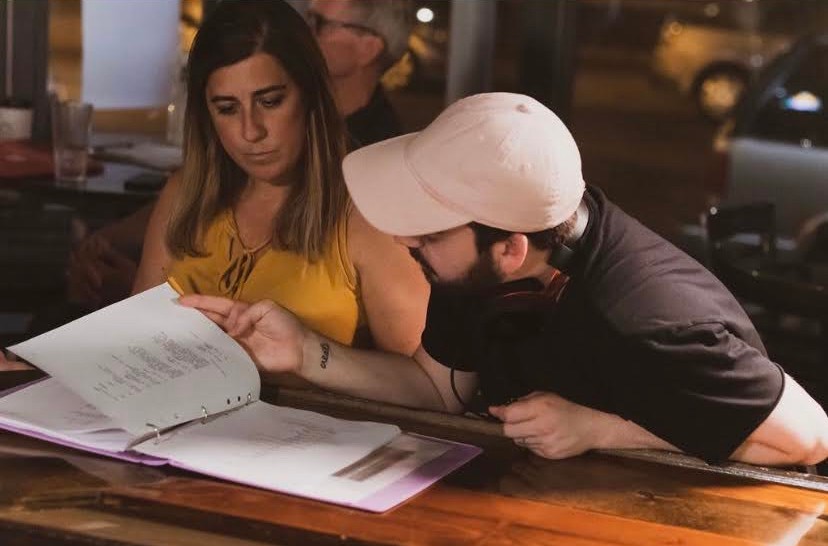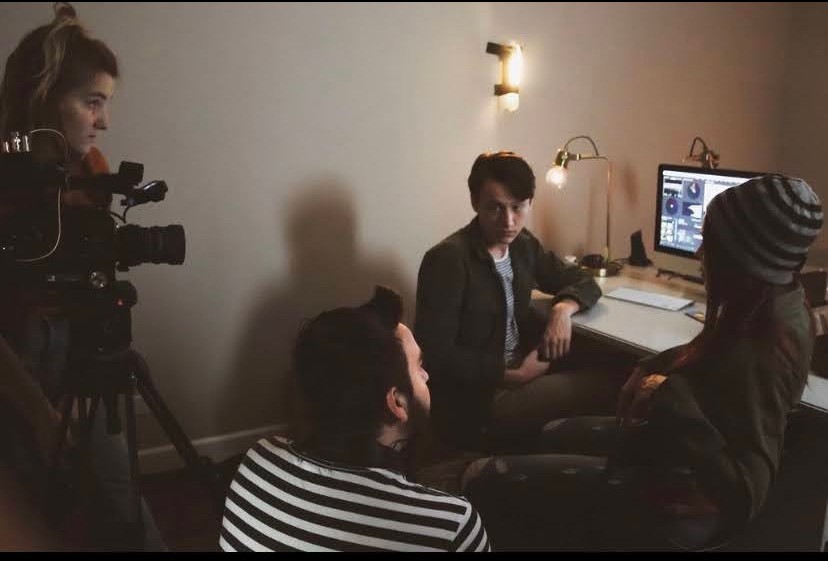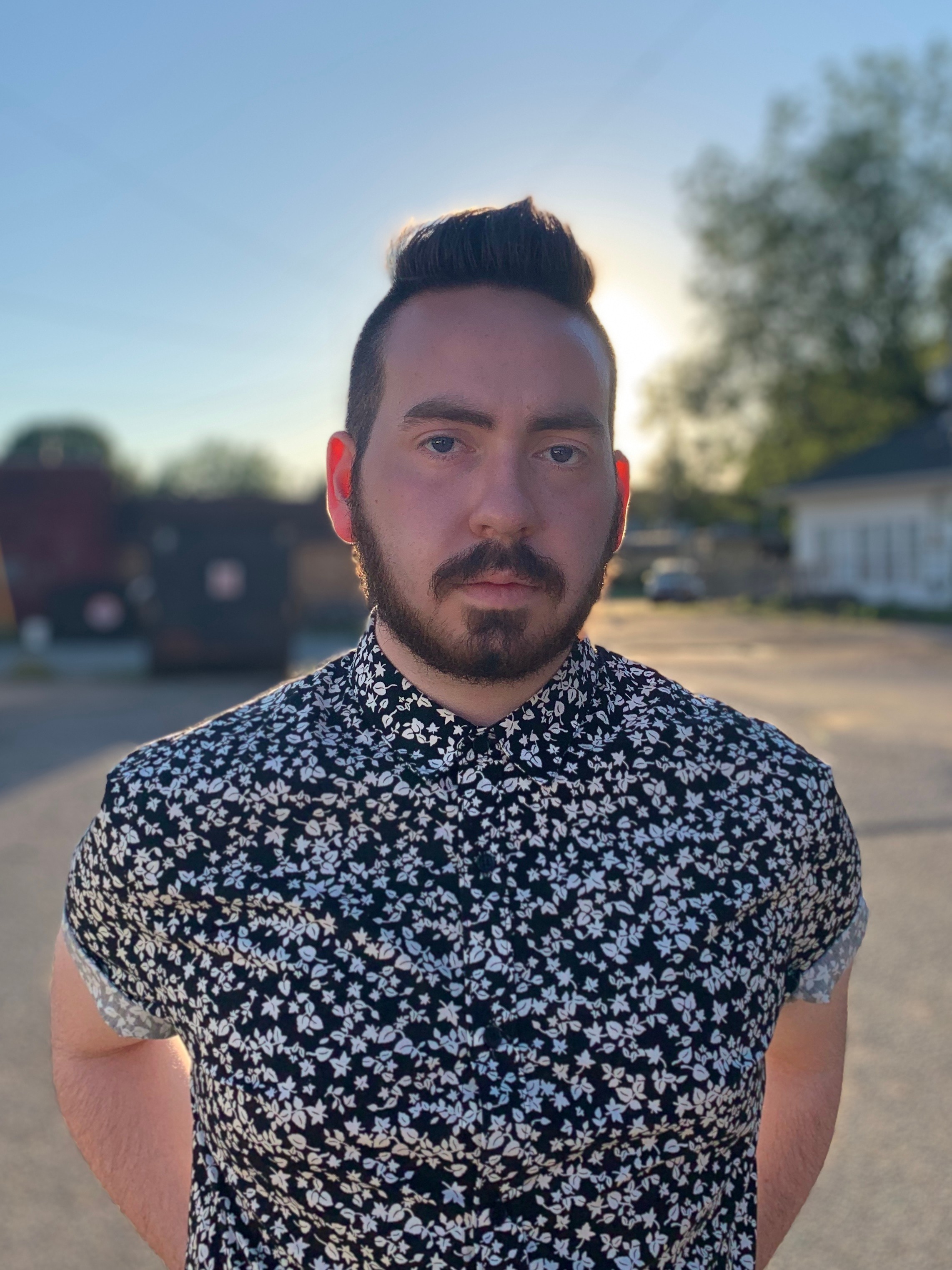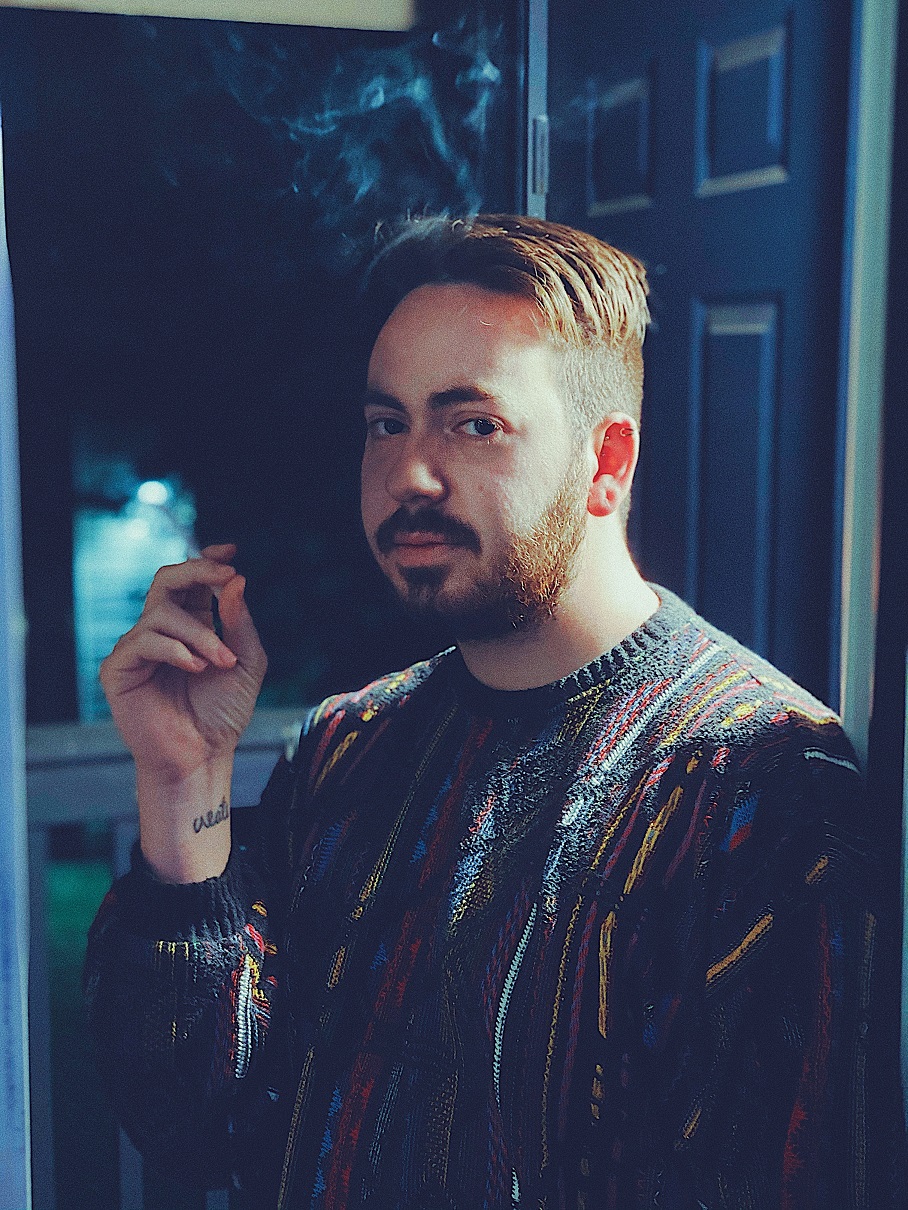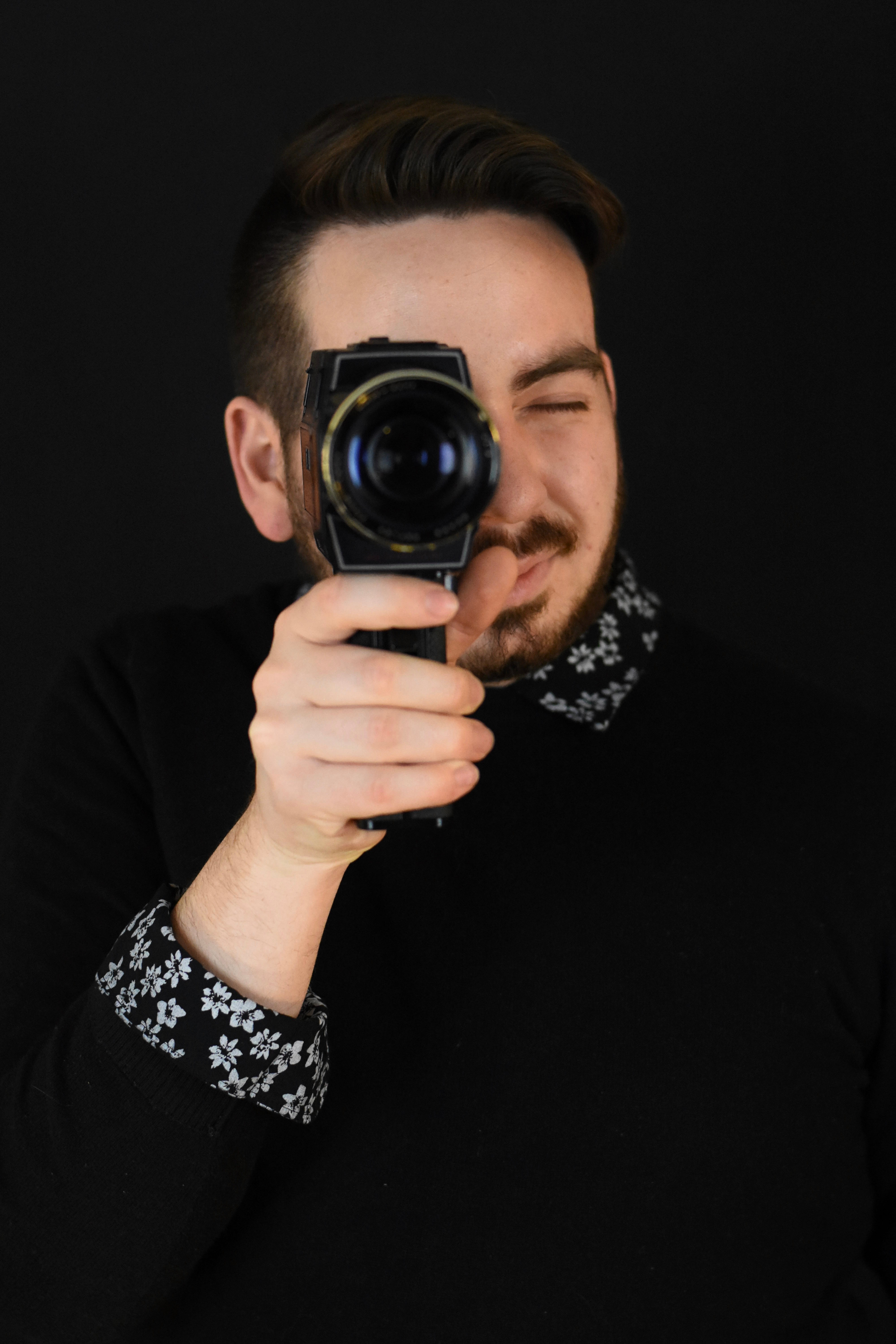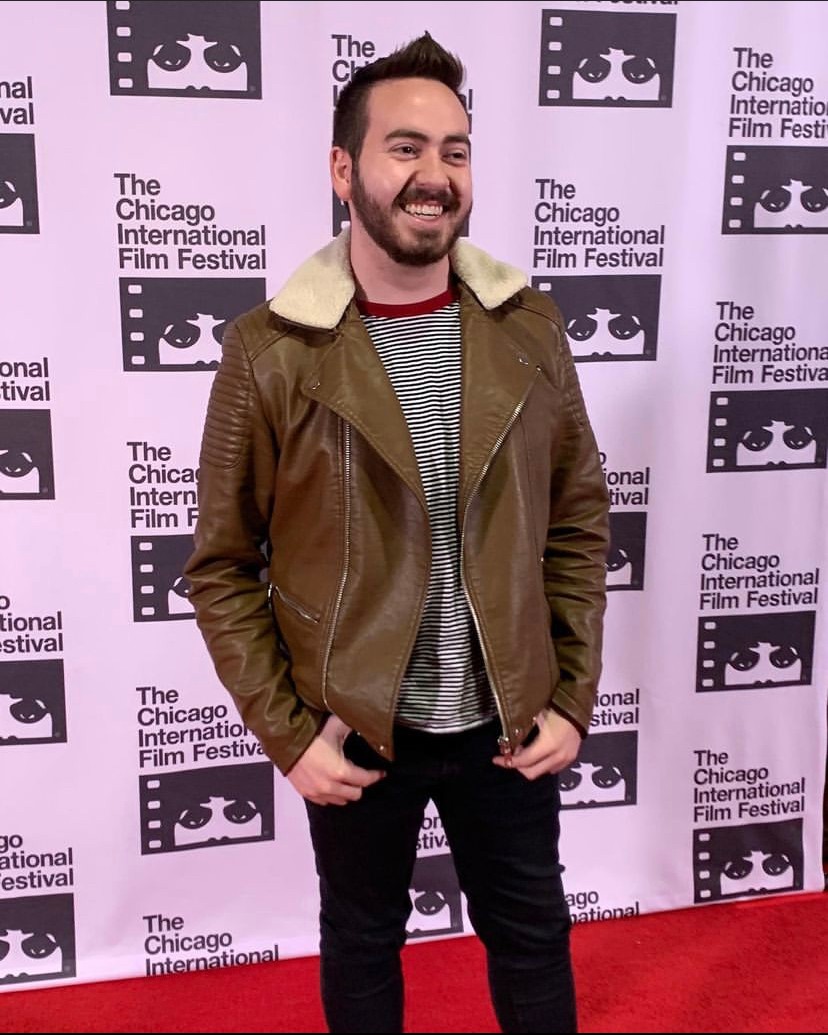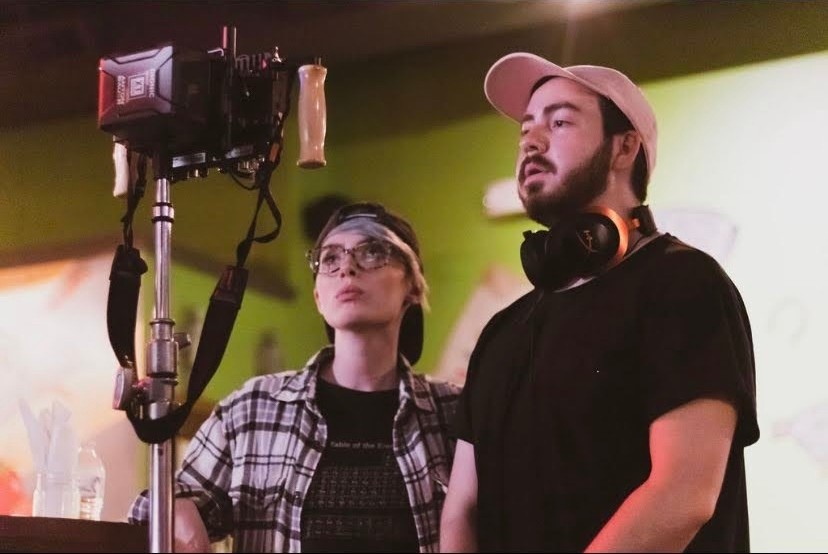

Today we’d like to introduce you to Noah Way.
Noah, we appreciate you taking the time to share your story with us today. Where does your story begin?
I started off my artistic journey by doing several theatrical productions in my adolescence and making stop-motion shorts with my mother’s digital camera. It was a Kodak with only 6 megapixels. That was the only creative outlet I really had in my youth. I craved the magic of storytelling. My creativity always felt like bees buzzing in my head and I had to get it out some way or another otherwise, I’d go mad. Still feel that way today. That led to the natural transition and crescendo that art, film, and theater placed on my life. Eventually, I slowed down on performing as an actor and began directing plays and musicals rather than audition for them. Writing and directing seemed so complex and challenging. That was something I was willing to take on.
Being homeschooled gave an immense amount of flexibility in my schedule to devote myself to my craft– after I completed my schoolwork, of course! Rather than only be limited to school-related clubs and activities, I had to seek community and opportunities elsewhere; which meant I was consistently meeting new people, joining new groups, networking, and attempting to socialize in a myriad of different settings… in order to compensate for the anti-social stigma of homeschooling, perhaps?
I started my undergraduate degree at the ripe age of 16. There weren’t many writing or directing programs that stuck out to me and I was too young to move away from home. I was conditioned to believe the arts weren’t even a viable career choice. The term “unrealistic” was used by many people trying to guide me. So I made a compromise to appease. I got my degree from a small liberal arts university with a double-major in Acting and Communication with an emphasis in Media Studies. The latter, being used as a “back-up” career option– something that’s now unnecessary. I used the acting training and the knowledge I learned from a wonderful mentor, Stacy Parker-Joyce as pedagogy to hone in my directing skills. Everything I learned about acting was really an incredible addition to my approach in my directing craft.
Along the way, I was simultaneously creating my own narrative short films to submit them to local festivals, attempting to better myself with each new work. I used one of the shorts to apply to graduate film school. Annually, I would read The Hollywood Reporter’s list of “25 Best Film Schools”. I looked at the top of the list, did my research, and applied to one of the top-tier universities in Los Angeles. Funny enough, the film I submitted for my application was my thesis film in undergrad. The thesis professor had given me a C- and called my work boring and uninteresting. But I guess it was good enough for my graduate program because I got accepted and moved to California that coming fall at age 20. The real kicker was when a former peer told me my undergrad university now uses the same short they criticized as an “example” to the capstone classes. I was flattered with their change of heart! Success truly is the best “revenge”, so to speak.
Moving to LA, I met several lovely people that embraced my uniqueness more than the Midwest ever did. I got to experiment with my own filmmaking and find out who I truly was as an artist. An existentialist question with an ever-evolving answer… if it even has one! However, after years of making short films, I could feel myself plateauing artistically. I needed something to really push the envelope, personally. In a dark moment, I thought about all my work and asked myself if I were to disappear tomorrow, what would I regret not accomplishing? And since as far back as I could remember, I’d been wanting to make movies… that seemed like the next, natural progression of my career. So I made a movie. I called up one of my mentors who I really admired, the producer John K. Burke. I asked if he’d be willing to come on to my film as a producer. He obliged and brought years of experience and wisdom I sought to make the project successful. People sometimes make jokes that actors have emotional breakdowns and director’s help solve them. Well, when a director has an emotional breakdown the producer solves those. At least that’s what John did for me.
My first movie really was a test subject or pilot, if you will, for my future filmography. Something of an experiment just to see if I was able to accomplish a production of that stature. It wasn’t necessarily the style or direction I planned on going, artistically. I made mistakes, but nevertheless, I persevered. I made a 100 minute feature learned a lot, and it served as a blueprint for how to make my sophomore film “Ekstasis” that much better. It ended up being exactly what I needed at the time. My first movie was able to end up on Amazon Prime and have select screenings, which carried a lot of weight, traction, and press that helped contribute to getting the funding for “Ekstasis”. Which is currently awaiting festival submissions.
Would you say it’s been a smooth road, and if not what are some of the biggest challenges you’ve faced along the way?
Audiences often watch film and television for escapism. They watch to soothe themselves or to find comfort. Sometimes, you’ll be watching a show and everything is so happy-go-lucky. Like the sitcoms where the characters have perfect families or relationships and even though they have minimal problems, they always seem to wrap up at the end of those 30-minute episodes. Sometimes, it can leave a person wondering why their life doesn’t mirror that. I think it can be dangerous to believe life is supposed to be picture-perfect. I know I’ve fallen for that trope. So, I’d be lying if I said there weren’t challenges and roadblocks along the way; not only for my career but who I am as an artist and human. Just like a drama film is going to have some comedy peppered in and a comedic film often has a dramatic arc, I find life so similar.
One of my biggest struggles came from feeling like I had to prove myself to others. Growing up in a very conservative, religious community made it very difficult for me to be myself and pursue a path as a filmmaker. Many viewed my aspirations as a pipe-dream and felt comfortable enough to tell me how unrealistic it was to have a career in the arts. This caused a bit of a complex in me, where I attempted to desperately over-perform and ambitiously climb to success. Not for my own satisfaction, but in order to prove to the naysayers I could do what they said was impossible. I ended up doing a lot of people-pleasing in order to prove I was respectable and that I had the credentials to know what I was doing. Despite people not taking me seriously, I continued to work at my accomplishments. Moving to Los Angeles and wrapping my first feature was a big game-changer. A lot of people who once rolled their eyes began treating me differently after that. Although, I’d like to note that geographical location does not determine success. Nor does anybody else’s approval. That was a big learning-curve that came along with some growing pains; achieving for myself rather than the approval of others. Success is relative and it’s not a comparison game either. Regardless of what people say, you and your art have value.
I am so happy to say I now have a wonderful support team. Not only from people that collaborate alongside me and my work, but from many terrific friends who have my back, make me feel loved, accepted, supported, and keep me accountable. The energy you keep around you is so important to maintaining a healthy life inside and out. I wouldn’t want it any other way!
As you know, we’re big fans of you and your work. For our readers who might not be as familiar what can you tell them about what you do?
When I think about my work, I want it to punch people in the brain and have it stay punched. Like I said previously, how most people consume media for escapism, as for me, I prefer a slap of reality. I want art to make me feel things and address uncomfortable subjects that make me think. I’ve always yearned for characters like me and stories I’ve experienced to make their way onto the screen, yet I don’t find many. So I began writing and directing original films, creating characters, and bringing stories to life for those who have yet to be seen on screen before. There are so many stigmatized and stereotyped groups of people who haven’t been showcased in films, in certain lights before; and it needs to be brought to life.
I learned long ago that a pretentious film and filmmaker was someone who told you how to view things. But a true artist simply displays their views for all to see and let audiences make up their own minds. That’s what I’m trying to do. In life, there are so many questions. Questions that have short answers; questions that have long answers; and questions that have no answers at all. I am attempting to create art that focuses on subjects with long answers or those with no answers at all. Life is not just black and white but filled with so much gray. It’s not always wrapped in a tight little bow. And it’s not always either / or — sometimes life is filled with a lot of “also’s”. I believe film and art should reflect this. So I try to keep my integrity to that ideology.
Something I appreciate about art is the ability to have the stories, experiences, and trauma fuel the work. It can be so healing and cathartic. When something pivotal happens to someone, it feels as though it lies dormant in them; a piling weight in the backpack of life. I attempt to take it all and turn it into something tangible and beautiful. I try to make it all productive. An experience that hurts me doesn’t just become a story I have to live with; it becomes a screenplay or a film in which I can process and use to soothe and comfort. In which I hope I am not the only person who benefits from. I would love to make people feel better or more seen in my work. I’m also under the school of thought as to “write what you know”. Not that I am self-inflated enough to believe my life is so interesting to become a film; but to approach everything I do with an extremely personal touch. It makes what I do stand out, in my opinion. It’s why I don’t write films about aliens or superheros but about very personal dealings with complex characters all relating back to the human condition.
I also don’t view myself as a domineering or controlling director. I don’t think of myself smart enough to take carte blanche on a piece of work. I want to collaborate with other artists; specifically the actors in my work. Maybe it has something to do with my theatrical background; where you constantly study work from people you have never met and perform it — but there are so many times in which an actor brings an idea to the table something you may have never even noticed or thought of as a writer or director. It adds so many layers to the work. I can’t tell an actor what they’re supposed to be feeling in a scene. It has to be an organic discovery from open conversation after severe analysis and dissection of the script and character. That’s kind of the whole gig of an actor, isn’t it? A dictating director could take away their job. There have been many times where I have had my own thoughts on the motivation or choices of a character — but when speaking to an actor, their viewpoint is an entirely different one than mine. That’s kind of the fun of it. Collaborating with other artists to bring something beautiful to life. — I imagine art as a statue or sculpture. If I’m standing from the front point-of-view; I can only see so much. But when I talk to the person who is seeing it from a different angle, my view has been enlightened in a way I would have never imagined if I had been close-minded. Both are right in their processes and discoveries. I believe this is something that sets me apart from other filmmakers out there.
The crisis has affected us all in different ways. How has it affected you and any important lessons or epiphanies you can share with us?
Oh, absolutely! I think something we all had to experience — or are experiencing, presently, is being alone with our own thoughts. I was always someone who was fine with being alone. Many put on a TV show in the background, play a podcast, or listen to music in order to not be alone with their thoughts; however, after a certain amount of time doing those things, your brain starts to feel like mush. So what are you left with, except for the company your own brain provides? Especially when you can’t go to set, work, or see friends.
Earlier in the pandemic, I was diagnosed with OCD; obsessive compulsive disorder. Which, by the way, is not entirely accurate to the way it’s depicted in media. I’m not running around the house cleaning things to no end. I am having severe intrusive thoughts and ruminations. I’m staying up late at night, not being able to sleep, wondering where my childhood teddy bear or passport is — and have no way of finding solace until I find it. It’s repetitive action, like setting an item down or locking my legs in a certain pattern every time I stand up until it “feels right”. It’s having terrible thoughts plague your brain — which, you know aren’t true, but you’re not able to convince yourself otherwise. There’s a lot of paranoia involved. And for me, personally, it’s not being able to get certain thoughts out of my head which cause me to spiral into a dark place. No amount of confirmation or validation can fix it, either. Your brain becomes your own worst enemy.
So… when you have a lot of downtime during the pandemic, you’re stuck with all of these things in your head, sans welcomed distractions. But, I was forced to deal with them head-on. It was pinnacle to realize that I was not my thoughts; they were simply just things passing through my highly creative brain. Which is kind of twisted– because I know, for a fact, that the same brain which is capable of writing a 120-page script with stellar plot and dialogue is the same one that tortured me throughout the day. Sometimes, in my darkest moments, I felt as if the only thing that could fix the problem was a lobotomy. So I attempted to use deep analysis to my advantage. Asking myself “why?” I was thinking certain thoughts over and over again. Asking myself for proof with the way my brain was twisting reality. The amount of self-work I did amidst the pandemic, looking back, seems impossible now. But I know, if I didn’t spend all that time alone in my bedroom, with my thoughts, I would not have been able to take on the monster. Learning to control the same debilitating beast who was responsible for so many of the beautiful, creative ideas I had was something necessary to continuing my quality of life. Albeit, it’s not always perfect. But thus is life, eh?
In all that to say, the COVID-19 crisis absolutely helped me learn insurmountable lessons about myself and my own brain that I will carry with me for the rest of my life. I want to live the healthiest life that I can, so I can continue to devote myself to my art.
Contact Info:
- Website: https://linktr.ee/noahway
- Instagram: https://www.instagram.com/itsmenoah/
- Youtube: https://twitter.com/itsmenoah
